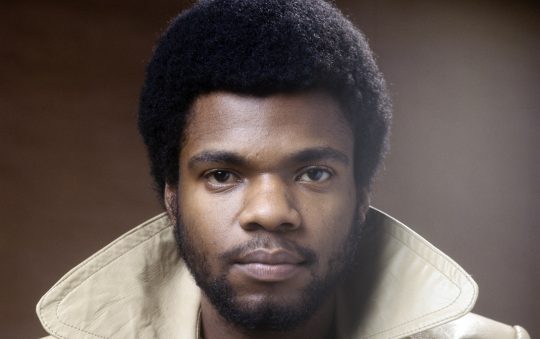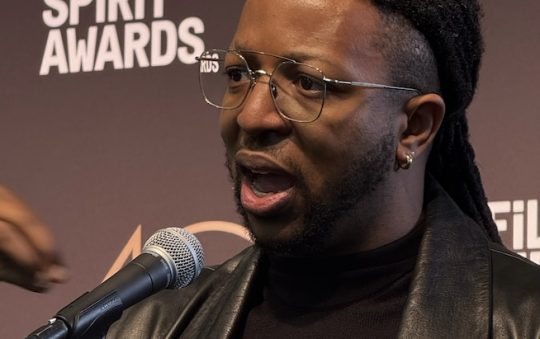
At the 2023 Tribeca Film Festival, I had the pleasure of meeting Rishi Rajani, the CEO and president of Film/TV Productions at Hillman Grad Productions. Contrary to my initial impression based on his social media presence, Rishi turned out to be warm and inclusive.
His first words to me were a compliment on my new glasses, and it reminded me of the quote from the film “Goodfellas” – “You’ll like this guy. He’s all right. He’s a goodfella, one of us.”
Rishi’s inclusive nature aligns with what I’ve heard about Lena Waithe and how the company operates. Both and the company are known not only for their exceptional work but also for their integrity, a rarity in an industry filled with broken promises, emphasizing Waithe’s statement that “we are forever tethered.”
Founded in 2015, Hillman Grad is a multi-platform entertainment company amplifying stories of marginalized communities. The company produced award-winning films like “The Forty-Year-Old Version” and “Queen & Slim,” and notable shows like “The Chi” and “Twenties” under their exclusive deal with Warner Bros. Television Group.
Related Links:
Collaborating with Def Jam Recordings, Hillman Grad Records uplifts underrepresented artists and explores podcasting projects on Audible, Spotify, and Realm, including the exclusive series, “KYM.” Additionally, The Hillman Grad Foundation, their nonprofit arm, supports creatives from underrepresented communities, aligning with their mission of opening doors.
Rajani, born in London and raised in upstate New York and Portland, Ore., joined Hillman Grad Productions in 2018. With a background in the film and television industry, he’s played a vital role in amplifying diverse stories and voices of historically marginalized communities across all industries.
Here is what Rishi Rajani, shared about his journey so far.
LOS ANGELES SENTINEL: Rishi [Rajani], I love what Lena [Waithe] said: “We are all forever. We are forever tethered” that’s true in a micro and macro sense. What I love about your production company is that you keep your word. Hillman have integrity, that’s rare.
RISHI RAJANI: Especially not in this business. I think that was really important to us. I think that’s one of the things too that when we really first started Hillman Grad, she [Lena] said, ‘I’m always about the follow up.’
LAS: That’s how creative people grow.

RR: I’m always the person who asks for updates and checks in on us. It’s so easy for people to make promises like, ‘Yeah, I’ll definitely get back to you on that script’ or ‘Yeah, I’ll definitely read/watch that.’ But Lena is the person who ensures that those promises are kept. It starts from Lena, then me, and Naomi [Naomi Funabashi], president of Film/TV, Justin [Justin Riley] who manages our business operations, and Marquis [Marquis Phifér] who heads our cultural marketing division. We prioritize follow-up and holding everyone accountable. That’s why it’s tempting for people to ignore us, but we won’t let that happen.
LAS: Hollywood being a business and the proven financial gains of engaging with BIPOC and LGBTQ+ communities make it clear that turning away from our stories and storytellers is outright racist. The data speaks for itself.
RR: Absolutely. Yeah, the whole notion of our narratives being considered niche or our storytellers lacking the necessary credentials to advance in the industry is a tired excuse that has persisted for probably a good century within Hollywood.
LAS: Facts.
RR: Easily. And for us, it’s about eliminating all the excuses. If the concern is about box office performance, we ensure that the budget remains within a reasonable range. Worried about personal experience? Excellent. We bring on a producing director to provide comprehensive support and assemble experienced department heads. We guide you through every step, from storyboards to the vision to the pitch. Our approach is all about adapting and strategizing, leaving no room for anyone to challenge us without a strong counterargument.
LAS: I’m intrigued by the topic, especially regarding the South Asian perspective. With India, Bangladesh, Sri Lanka, and Pakistan being complex and diverse countries, I’m curious about the most effective way for South Asian stories to make an impact in Hollywood today.
RR: I absolutely appreciate that question. Thank you. Personally, I’ve encountered significant challenges in finding a South Asian community, and that’s why I hold tremendous admiration for three individuals: Bash Naran, Vinny Chibber, and Nik Dodani.
They initiated an organization called The Salon, and they approached me to lead the mentorship aspect of it. The Salon serves as a platform for South Asians in the realm of Hollywood. One crucial realization we’ve collectively reached is that South Asians have often been conditioned to compete rather than collaborate with one another.
LAS: Collaboration is the key. Why can’t Black and Brown understand it?
RR: Yeah, absolutely. Well, it’s disheartening to acknowledge that it’s deeply ingrained within the system, and it involves numerous individuals. Breaking through and reaching the top can be an incredibly daunting challenge. That’s why I believe it’s crucial to recognize this significant aspect. By actively collaborating and supporting one another, we can strengthen our community, enhance our representation, empower our filmmakers, and genuinely champion our content. I’ve noticed an encouraging shift with the emergence of the next generation of South Asians, particularly through the remarkable accomplishments of those individuals involved with The Salon. It fills me with immense pride to be a part of such an organization.
LAS: Conquering your dreams one step at a time. I am in.
This interview has been edited for length and clarity.






